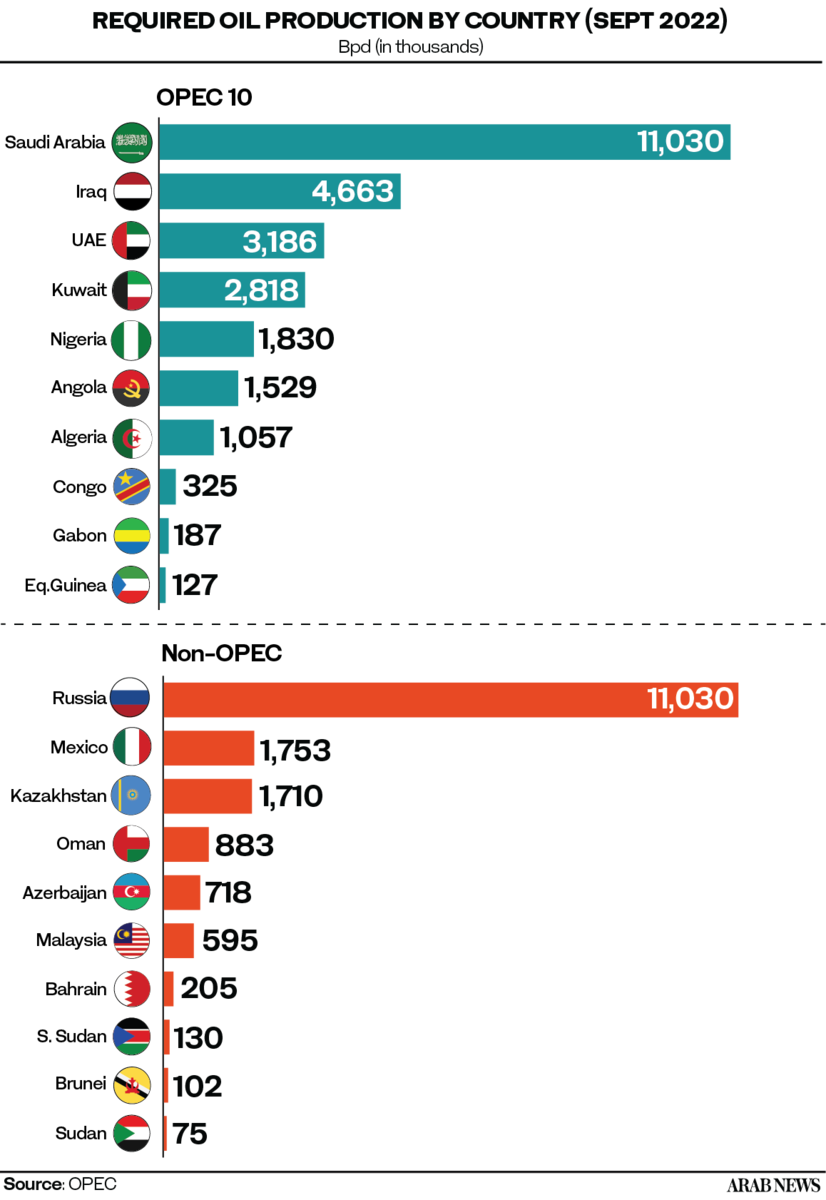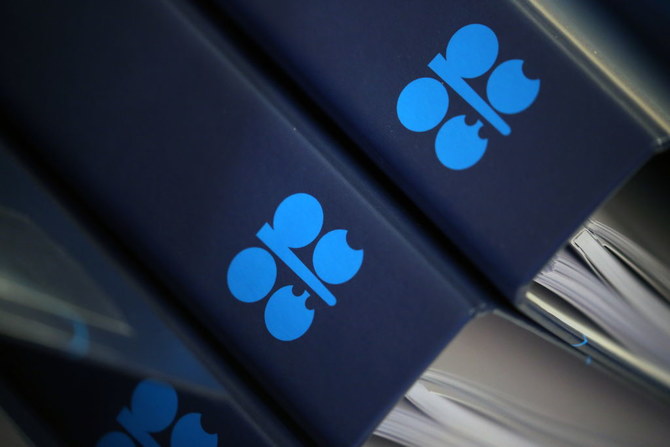RIYADH: The Organization of the Petroleum Exporting Countries and its allies, known as OPEC+, has agreed to a further 100,000 barrels per day oil production hike from September as it warned of a lack of spare capacity for any greater increases.
The alliance, which includes Russia, held a meeting on Wednesday to discuss output levels amid calls from the US to ramp up production to cool the international oil market.
The increase will mean the 23-nation group, which includes Russia, will raise output by 748,000 bpd from next month.

In a statement after the meeting, OPEC+ warned that a lack of investment into the upstream sector will impact the availability of adequate supply “to meet growing demand beyond 2023 from non-participating non-OPEC oil-producing countries, some OPEC Member Countries and participating non-OPEC oil-producing countries.”
The next meeting is scheduled for Sept. 5.
White House Energy Advisor Amos Hochstein was reported as saying the US will monitor the oil market to see if the hike is adequate.
The US has put OPEC leaders Saudi Arabia and the UAE under pressure to pump more oil to help rein in prices boosted by rebounding demand and Moscow’s invasion of Ukraine.
US and Western sanctions on Russia have caused prices of all types of energy to soar, resulting in inflation at multi-decade highs and central bank interest rate hikes.
US President Joe Biden used his visit to Saudi Arabia last month to raise the issue of energy supply, but the Saudi Crown Prince made it clear the Kingdom would not expand monthly production beyond 13 million barrels.
“Saudi Arabia’s policy on oil has been to try to seek balance in the energy markets, to make sure that the markets are adequately supplied and that there are no shortages,” Adel Al-Jubeir, Saudi Arabia’s minister of state for foreign affairs, told Arab News in an exclusive interview during Biden’s visit.
Speaking after the meeting, Russian Deputy Prime Minister Alexander Novak said global oil demand has almost recovered to pre-pandemic levels,
He told state TV channel Rossiya-24 that uncertainties remained in logistic chains and possible further spread of the COVID-19 pandemic, adding that Russia and Saudi Arabia, two leading players in the oil output coordination deal, plan to hold an inter-governmental meeting in October.
Oil Prices
As reports of the OPEC+ decision began to circulate, oil futures turned positive.
Brent crude futures were up 0.47 percent at $101.01 a barrel at 02.50 p.m Saudi time, while West Texas Intermediate crude futures climbed 0.66 percent, to $95.08 a barrel.
Demand for oil to continue recovery albeit at slower pace, OPEC Sec Gen says
Demand for oil is expected to continue its recovery, albeit at a slower pace than earlier this year and last year, OPEC’s secretary general told Algerian state television ahead of Wednesday’s meeting.
“We are still seeing increased demand for oil... compared to the period of the COVID-19 pandemic in 2020 and 2021. There is post-pandemic recovery, and we are still seeing that but there is a relative decrease in its pace,” Haitham Al-Ghais told the Algerian news channel in remarks aired late Tuesday and posted on social media on Wednesday.
Production policies since COVID-19
OPEC has been increasing output in line with its targets by about 430,000-650,000 bpd a month in recent months and has refused to switch to speedier output increases.
Group sources have cited a lack of spare capacity among members to add more barrels as well as the need for further cooperation with Russia as part of the wider OPEC+ group.
By September, OPEC+ would have wound down all of the record production cuts it implemented in 2020 to deal with a collapse in demand caused by the coronavirus pandemic.
In June, OPEC+ produced almost 3 million barrels per day less crude than foreseen by its quotas as sanctions on some members and low investment by some others crippled its ability to assuage the worlds energy crisis.
Only Saudi Arabia and the UAE are believed to have some spare capacity left to increase production.
French President Emmanuel Macron has said he had been told that Saudi Arabia and the UAE had very limited ability to increase oil production.


























